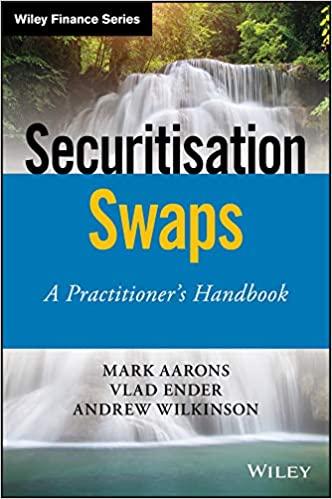Question
This is a comprehensive project evaluation problem bringing together much of what you have learned so far. Company ABC is a large publicly traded firm,
This is a comprehensive project evaluation problem bringing together much of what you have learned so far. Company ABC is a large publicly traded firm, a market leader in producing self-driving agricultural machines. The company is looking at setting up a manufacturing plant overseas to produce a new line of self-driving tractors. This will be a four-year project. The plant and equipment will cost $100 million to build. The market data on ABCs securities is following:
Debt: 550,000 of 5.6 percent coupon bonds outstanding, 20 years to maturity, selling for 108 percent of par; the bonds have a $1,000 par value each and make semiannual payments.
Common stock: 22,000,000 shares outstanding, selling for $56 per share; the beta is 1.1
Preferred stock: 1,200,000 shares of 5 percent preferred stock outstanding, selling for $85 per share.
Market: 7 percent expected market risk premium; 3 percent risk-free rate.
ABC faces 8 percent floatation costs of new common stock issues, 6 percent on new preferred stock issues, and 4 percent on new debt issues. ABCs tax rate is 35 percent. The project requires $5,5 million in initial net working capital investment to get operational.
a. Calculate the weighted average of floatation costs and use this to adjust your initial investment.
b. The new project is somewhat riskier than a typical project for ABC, primarily because the plant is being located overseas. Management has decided to use an adjustment factor of +2 percent to account for this increased riskiness. Calculate the appropriate discount rate to use when evaluating ABCs project (start by calculating WACC).
c. The manufacturing plant has a four-year tax life, and ABC uses straight-line depreciation. At the end of the project (that is, the end of Year 4), the plant and equipment can be scrapped for $20 million. What is the after-tax salvage value of this plant and equipment?
d. The company will incur $16 million in annual fixed costs. The plan is to manufacture 2,000 tractors per year and sell them at $110,000 per machine; the variable production costs are $75,000 per tractor. Confirm that annual operating cash flows (OCF) from this project are $43.85 million.
e. Confirm that the last years (year 4) total cash flow from assets is $62.35 million (dont forget to add in the net working capital and after-tax salvage value).
f. Given the following total cash flows of years 0-4: -112,637,300; 43,850,000; 43,850,000; 43,850,000; and 62,350,000 what is the projects internal rate of return (IRR) and net present value (NPV). Would you recommend to invest into this project?
Step by Step Solution
There are 3 Steps involved in it
Step: 1

Get Instant Access to Expert-Tailored Solutions
See step-by-step solutions with expert insights and AI powered tools for academic success
Step: 2

Step: 3

Ace Your Homework with AI
Get the answers you need in no time with our AI-driven, step-by-step assistance
Get Started


